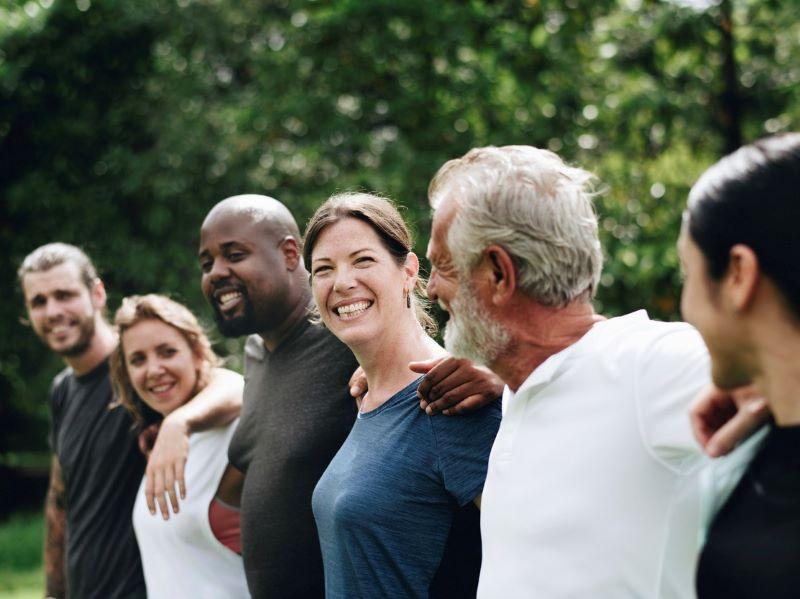In a drop-in conversation to explore the idea of a platform for university-community partnerships, one resident challenged us that if we were serious, we should be prepared to commit to “a relationship and not an affair”. This phrase communicates the mistrust among communities of on-again, off-again projects. We know that the “affair”-like nature of these collaborations may be due to pressures of short-term funding, top-down predefined outcomes, exit plans or an impetus to continuously demonstrate “new” approaches. But community memories of tokenistic and extractive practice are held far longer than a revolving university strategy.
A relationship, on the other hand, is a enduring commitment to unknown outcomes, continuity with the same partners and places, and sticking around to work through the long-term consequences of our actions.
- Four ways universities can enhance their community impact
- Changing lives through community engagement and outreach
- ‘You can change the world with a haircut’: engaging communities at risk
These informal meetings in Grangetown, Cardiff led to eight junior academic and professional staff at Cardiff University forming the Community Gateway platform. Since its launch in 2015, creating open space for staff, students, residents and local organisations to follow passions and test ideas at any scale has attracted over 300 expressions of interest and facilitated more than 100 partnership projects.
How can universities commit to forming long-term relationships with their community?
The platform supports long-term partnerships focused on a geographic area. It invites ideas from all disciplines and areas across the university and local community, bound together only by location and a principle of mutual benefit, with the team matchmaking university and community partners.
An initial 10-year business case for internal funding enabled a three-year listening period and the creation of a core team of a partnerships manager to build connections between community and university, a project manager to facilitate emerging partnership projects, and an academic lead to support embedding teaching and research into partnerships. Seed funding for projects included establishing a physical partnership hub with local organisations for a continuous local presence.
Being ‘of’ and not just ‘in’ the community
When Community Gateway began, we were introduced to a challenge defined by Sir David Watson in The Engaged University, his 2011 book that looks at the global civic engagement movement in higher education. Echoing the sentiment of “a relationship and not an affair”, Watson proposes that civic engagement presents “a challenge to universities to be of and not just in the community: not simply to engage in ‘knowledge-transfer’ but to establish a dialogue across the boundary between the university and its community which is open-ended, fluid and experimental’”.
Now, 10 years later, all university schools, multiple professional service departments and more than 1,000 students, from first-year undergraduate to PhD, have engaged with more than 5,000 residents through live teaching, work and research placements, joint-funded research, ambassador roles, staff development and volunteering.
From initial fears that students might tire of working in the same area year upon year, an established “inch wide mile deep” approach, as described by adrienne maree brown in Emergent Strategy, annually builds on each other’s work, with each contribution creating what one resident calls a “growing catalogue of community knowledge”.
The partnership hub, supported by teaching, research and volunteering, has developed as a community-led facility chaired by a co-created charitable organisation. We are developing a 99-year partnership agreement as a board member of this charity, extending a commitment beyond our own lifetimes.
The partnership platform adheres to the principles described by Watson:
- Being ‘of’ and not just ‘in’ the community: The core team includes a resident who brings deep, nuanced local knowledge and trust to developing partnerships. Long-term commitment means school students who have attended our Career and Role Models events and were founding members of a Youth Forum now lead partnership projects as university graduates and PhD researchers.
- Establish a dialogue: Applying appreciative inquiry gives permission to dedicate time to listening first, to understand what is already in place and working, before proposing action. The slowness of building long-term relationships reveals, over time, uncomfortable truths about how the university is locally perceived and experienced, truths we would not have been told without taking time to build trust. Through such dialogue, communities transform the university.
- ‘Open ended, fluid and experimental’: Ideas emerge through relationships. With no predefined targets, we “follow the energy” rather than forcing projects into being. Sometimes projects don’t work. Accepting risk, adopting a no-blame culture and “staying with the trouble” strengthens relationships and maintains trust.
Long-held memories
University funding and operational structures foreground the innovative and new. Yet short-term, groundbreaking projects can lead to lots of empty holes in lieu of nurturing existing work, risking community fatigue and mistrust of universities. Far from being “hard to reach”, people may “choose to step away” from practices perceived as tokenistic and extractive. Our partnership is only 10 years old. This is a long time in university funding and strategy cycles but a very short time in community memory.
We are supported in a Welsh context by the Well-being of Future Generations (Wales) Act. This places statutory duties on public bodies to base decisions on their impact on future generations. This radical yet simple premise, requiring cultural change at all levels of governance, demands long-term thinking, integrated working, preventative approaches, collaboration and involvement. In this context, a resident’s challenge for a university to commit to “a relationship and not an affair” is equally radical and simple.
Mhairi McVicar is project lead, Ali Abdi is partnerships manager, and Corey Smith is project manager, all of Community Gateway in the Welsh School of Architecture at Cardiff University.
The Community Gateway/Grange Pavilion partnership was highly commended in the Outstanding Contribution to the Local Community category of the Times Higher Education Awards 2025. The full list of nominees can be found here.
Academics and university leaders from across the UK and Ireland will come together at THE Student Success UK&IE to talk about improving student outcomes through innovative pedagogical practices, support services and the data that underpins them. Join us for this two-day event in Edinburgh on 12-13 November.
If you would like advice and insight from academics and university staff delivered directly to your inbox each week, sign up for the Campus newsletter.




comment